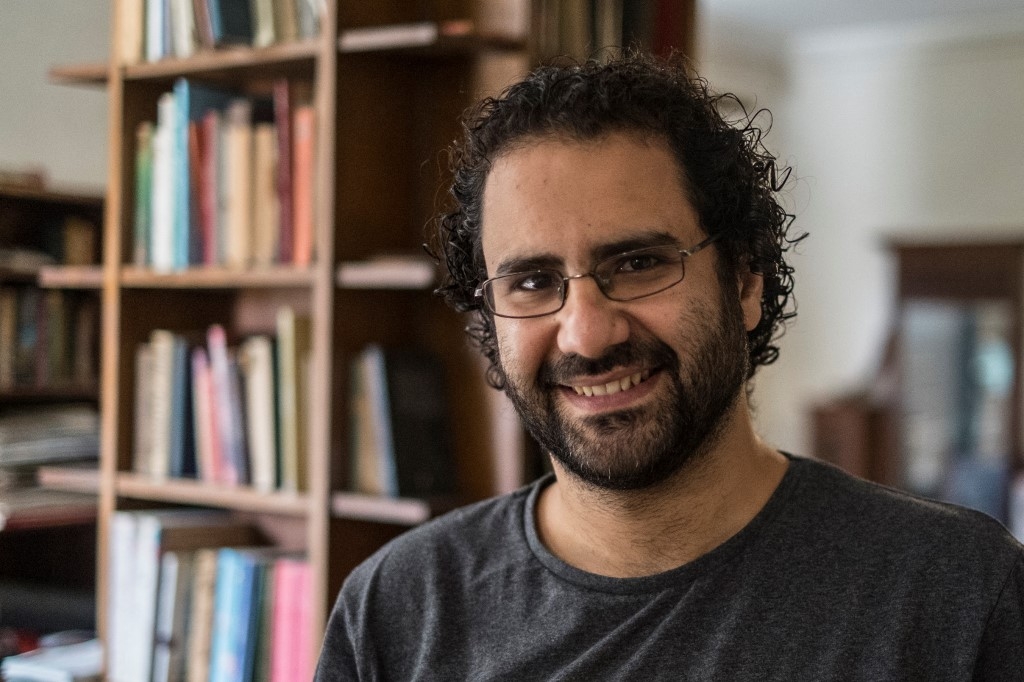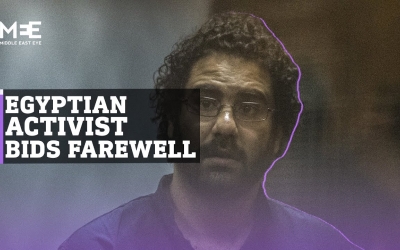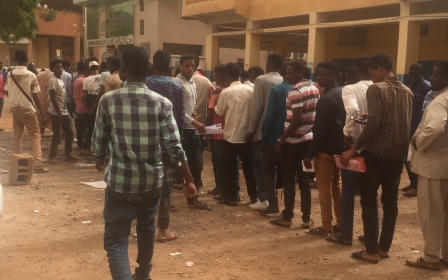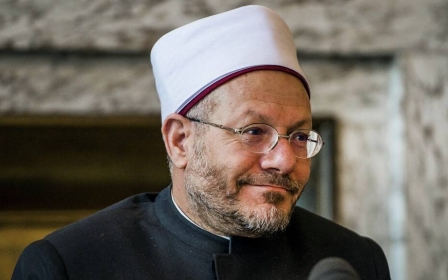Alaa Abd el-Fattah: The jailed Egyptian activist on hunger strike

Alaa Abd el-Fattah, 40, is an Egyptian left-wing political activist, blogger and software developer. He is widely regarded as one of the most prominent youth figures in Egypt’s pro-democracy movement.
Abd el-Fattah, who was granted British citizenship last month, has been on hunger strike in Tora prison since 2 April in protest against the Egyptian authorities' refusal to allow UK officials to meet with him and provide other basic rights.
Born on 18 November 1981, Abd el-Fattah is from a family of human rights activists and writers.
His late father, Ahmed Seif El-Islam, himself a former political prisoner, was a human rights lawyer and founder of the Hisham Mubarak Law Centre.
Abd el-Fattah's mother, Laila Soueif, is a mathematics professor at Cairo University and a political activist, and his aunt is the Egyptian-British novelist and political commentator Ahdaf Soueif.
New MEE newsletter: Jerusalem Dispatch
Sign up to get the latest insights and analysis on Israel-Palestine, alongside Turkey Unpacked and other MEE newsletters
One of his sisters, Mona Seif, is a human rights defender, while his other, Sanaa Seif, is a human rights defender and filmmaker.
Alaa became a British citizen in April 2022 through his mother, who was born in London.
Abd el-Fattah has served several intermittent prison terms since Hosni Mubarak's rule for his criticism of multiple governments.
During the Mubarak era, he was detained several times over his support for the judicial independence movement and his positions regarding the Maspero protests in October 2011.
During the one-year rule of President Mohamed Morsi, he was summoned twice by the prosecutor general: first for interrogation over allegations of inciting violence during a protest outside the Muslim Brotherhood's headquarters, and second for allegedly torching former presidential candidate Ahmed Shafik’s campaign headquarters.
No evidence was found to support the allegations, which he vehemently denied, and Abd el-Fattah was not jailed.
Following President Abdel Fattah el-Sisi's 2013 coup, Abd el-Fattah was first jailed on charges of protesting without permission in November of that year after he took part in a demonstration against military trials for civilians.
He was sentenced to five years in prison in February 2015, and then was granted conditional release in March 2019. The terms of his parole at that time meant that he had to spend every night in a cell in his local police station.
His son Khaled was born in 2011 during his two-month detention, and his father died while Abd el-Fattah was in jail in 2014.
In September 2019, he was detained again, from inside the police station where he served the parole, at the time of anti-government protests that he did not take part in. He was then held in pre-trial detention in Tora prison for more than two years, which exceeds the maximum period under Egyptian law.
In September 2021, Abd el-Fattah's lawyer said the activist was seriously considering suicide in prison due to the dire conditions of his detention.
While in jail, in December 2021, he was sentenced to five years in prison by an emergency state security court on charges of spreading “false news", in a trial widely condemned by human rights defenders. The evidence used against him was a retweet.
Abd el-Fattah's blog and social media accounts, particularly Twitter, were his main outlets for expressing his opinions, some of which were in 2021 turned into a book under the title You Have Not Yet Been Defeated.
Middle East Eye delivers independent and unrivalled coverage and analysis of the Middle East, North Africa and beyond. To learn more about republishing this content and the associated fees, please fill out this form. More about MEE can be found here.





